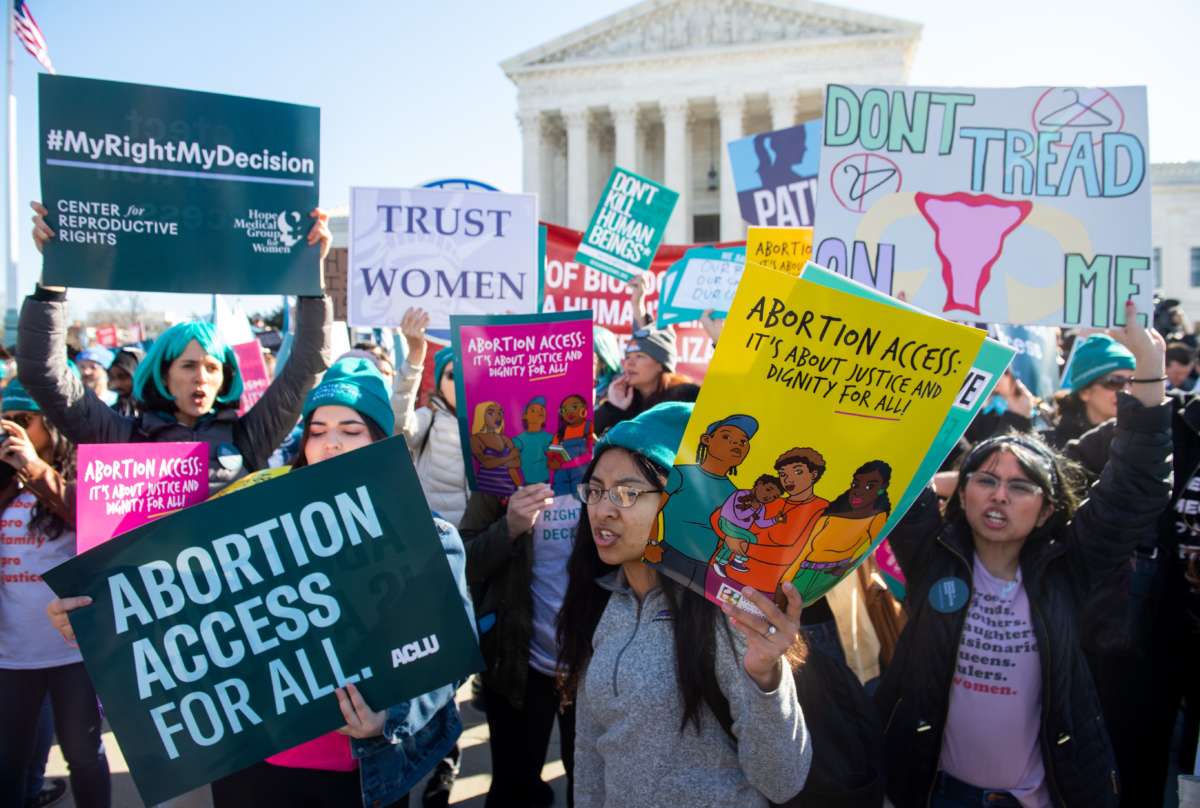Congress just took a historic step forward for racial, economic and reproductive justice 45 years in the making. Every year since 1976, lawmakers have chosen to deny insurance coverage of abortion to people working to make ends meet by adding a policy known as the Hyde Amendment to federal spending bills. But now, for the first time since Hyde’s inception, the U.S House passed a budget without this harmful policy.
The House vote marks a bold rejection of decades of injustice against women, people of color and people living paycheck to paycheck, among others targeted by Hyde. Now, we turn our attention to the U.S. Senate.
The push to end Hyde is happening at a pivotal moment. As a country, we are finally beginning to critically reckon with policies that hurt people of color, whether they shape our chances of surviving a pandemic or an interaction with police. Bans on abortion coverage are driven by the same forces motivating state-sanctioned violence and even voting restrictions. Each aims to control the lives of Black, Brown and other people of color, especially folks struggling financially.
Abortion coverage is absolutely a matter of racial and economic justice. The ban targets people enrolled in Medicaid. In 2019, this meant denying abortion coverage for one in five women of reproductive age. Today, Hyde’s targets are disproportionately Black, Latina and Indigenous, because they confront the steepest barriers to health care and financial security. This ban also hurts others marginalized by our health care system, including young people, immigrants and LGBTQ people.
These are the same communities who continue to bear the brunt of the COVID-19 pandemic, deepening Hyde’s consequences. Many people with low incomes can’t afford a $400 emergency, which is less than the average cost of an abortion. Most would also need to find money to pay for child care, missed work, and possibly travel and housing.
Not only does Hyde target those working to make ends meet, but withholding coverage of abortion care can be what pushes someone deeper into poverty. Studies have shown that if a woman seeks abortion but is denied, she is more likely to fall into poverty than a woman who can get an abortion. Other research has found that when policymakers severely restrict Medicaid coverage of abortion, it forces one in four women to carry an unwanted pregnancy to term.
In the face of an unprecedented spike in state restrictions on abortion and the threat of a U.S. Supreme Court case, Dobbs v. Jackson Women’s Health Organization, that directly challenges reproductive rights, this House vote is a beachhead of expansion for abortion justice, racial equity and economic security.
New polling shows that a resounding majority of voters understand just how critical it is to keep working toward this better future. Nearly 7 in 10 voters in battleground congressional districts support Medicaid coverage of abortion care. This majority cuts across all ages and different racial and ethnic groups. It also cuts across the political spectrum.
Uprooting such an entrenched policy was only made possible by the dedication, grit and commitment of women leaders of color. Alongside allies, they have continued speaking up for abortion coverage in states and local communities, including Maine, Illinois and Texas. On Capitol Hill, lawmakers like Rep. Barbara Lee (D-California) have advocated against Hyde since it was first authorized. With growing numbers of colleagues, she has championed the EACH Act, a bill to permanently reverse Hyde and similar bans on abortion. In the Senate, Sen. Tammy Duckworth (D-Illinois) is leading this charge.
Like other relics of racism and economic inequality, it is time to leave the Hyde Amendment in the past where it belongs. Decisive support of abortion justice by voters nationwide proves that we are ready to do so. House lawmakers’ historic vote was a crucial step in the right direction. Senators must follow their lead. By finally rejecting Hyde, we can build a future where each of us can make our decisions with dignity and economic security.
Press freedom is under attack
As Trump cracks down on political speech, independent media is increasingly necessary.
Truthout produces reporting you won’t see in the mainstream: journalism from the frontlines of global conflict, interviews with grassroots movement leaders, high-quality legal analysis and more.
Our work is possible thanks to reader support. Help Truthout catalyze change and social justice — make a tax-deductible monthly or one-time donation today.
